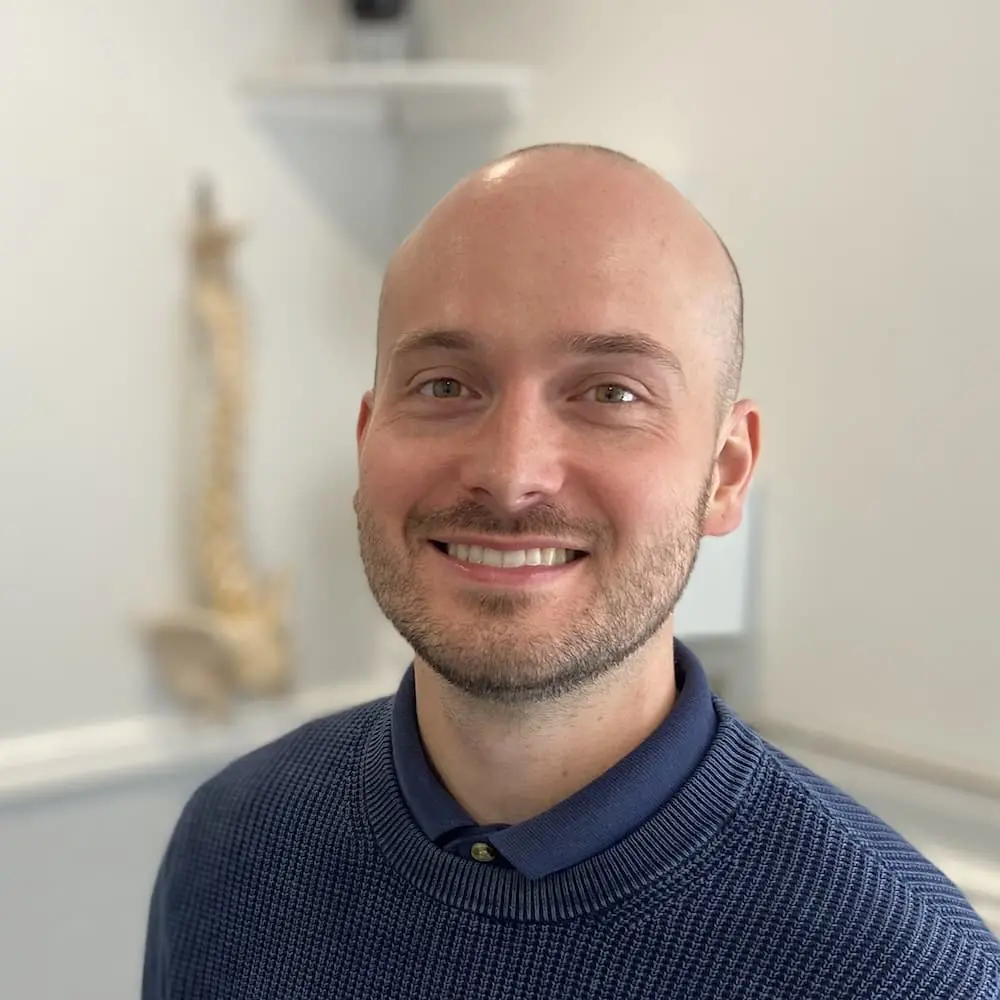Carpal Tunnel Syndrome
Carpal Tunnel Syndrome
Carpal tunnel syndrome (CTS) is a medical condition which affects the hand and wrist, usually caused by pressure on the median nerve as it passes through the narrow passageway of available space between the bones of the wrist referred to as the carpal tunnel.
What are some conditions associated with carpel tunnel syndrome?
- Wrist Anatomy: Individuals with smaller carpal tunnels or certain anatomical variations in the wrist may be more prone to developing CTS.
- Obesity: Excess body weight can increase the risk of developing CTS as it can contribute to increased pressure within the carpal tunnel.
- Inflammatory conditions: Types of arthritis can cause inflammation of the tissues in the wrist and carpal tunnel which increase pressure acting on the median nerve.
- Health Conditions: Certain medical conditions and disorders that affect the body’s metabolic balance and fluid retention, such as diabetes, hypothyroidism, and rheumatoid arthritis, are associated with an increased risk of CTS.
- Age: CTS becomes more common with age, as the tissues in the carpal tunnel may degenerate and become less resilient.
- Pregnancy: Hormonal changes during pregnancy can lead to fluid retention and swelling, which can put pressure on the median nerve, leading to CTS symptoms. However, these symptoms usually resolve after pregnancy.
- Smoking: Smoking has been suggested as a potential risk factor for CTS due its properties of contributing to systemic inflammation, although the exact relationship is not fully understood.
What are the symptoms of carpel tunnel syndrome?
- Numbness and Tingling: The most common symptom of CTS is a sensation of numbness or tingling, often described as “pins and needles,” in the thumb, index finger, middle finger, and part of the ring finger. These sensations may extend up the arm in some cases.
- Hand Weakness: Individuals with CTS may experience weakness in the hand, leading to difficulty in gripping objects, performing tasks that require fine motor skills, and feeling clumsy when handling small objects.
- Pain: CTS can cause pain in the hand, wrist, and forearm. The pain is often described as a dull ache or a burning sensation. The pain may radiate up the arm or even into the shoulder in more severe cases.
- Nighttime Symptoms: Many people with CTS experience symptoms, particularly numbness and tingling, during the night. This can disrupt sleep and lead to waking up with a sensation of needing to shake or move the hand to relieve symptoms.
- Relief with Shaking Hand: Shaking the affected hand vigorously or hanging the hand over the edge of the bed can sometimes provide temporary relief from symptoms by helping to alleviate pressure on the median nerve.
What can cause carpal tunnel syndrome?
- Repetitive Strain: Activities that involve repetitive hand and wrist movements, such as typing, using a computer mouse, playing musical instruments, or assembly line work, can contribute to the development of CTS.
- Wrist Injuries: Trauma to the wrist, such as fractures, dislocations, or sprains, can cause swelling and inflammation in the area, compressing the median nerve and leading to CTS symptoms.
- Vibrating Tools: Long-term use of vibrating hand tools, such as those used in construction or manufacturing, can increase the risk of developing CTS due to frequent aggravation of the median nerve and swelling and inflammation of the surrounding tissues.
What is the best treatment for carpal tunnel syndrome?
- Rest and Activity Modification: Reducing or modifying activities that worsen symptoms can provide relief. Avoiding repetitive hand movements or tasks that involve prolonged wrist flexion or extension can be helpful.
- Wrist Splinting: Wearing a wrist splint at night or during activities that trigger symptoms can help keep the wrist in a neutral position, relieving pressure on the median nerve.
- Ergonomic Adjustments: Making ergonomic changes to your workspace, such as adjusting the height and angle of your keyboard and using wrist supports, can help reduce strain on the wrist.
- Anti-Inflammatory Medications: Nonsteroidal anti-inflammatory drugs (NSAIDs) or oral corticosteroids may be prescribed to reduce inflammation and alleviate symptoms.
- Cold Compress: Applying a cold compress to the wrist can help reduce swelling and relieve pain.
- Physical Therapy: A physical therapist can provide exercises and approaches to help calm the irritation on the wrist and improve wrist and hand function. They may also use techniques such as manual therapy and interventional modalities to help manage symptoms.
- Corticosteroid Injections: Injections of corticosteroids into the carpal tunnel can provide temporary relief by reducing inflammation and swelling around the median nerve.
- Lifestyle Modifications: Making healthy lifestyle choices, such as maintaining a healthy weight, staying active, and avoiding smoking, can contribute to overall well-being and potentially reduce the risk of CTS.
Who should I see to fix carpel tunnel syndrome?
- Physical Therapist: A physical therapist can provide exercises and approaches to help calm the irritation on the wrist and improve wrist and hand function. They may also use techniques such as manual therapy and interventional modalities to help manage symptoms.
- GP: Your primary care doctor can assess your symptoms, perform a physical examination, and provide initial recommendations. They may also refer you to a specialist if needed.
- Orthopaedic Surgeon: An orthopaedic surgeon specialises in musculoskeletal conditions and surgery. They have expertise in treating disorders affecting bones, joints, muscles, and ligaments, including CTS. They can provide both non-surgical and surgical treatment options.
- Rheumatologist: If CTS is associated with an underlying autoimmune or inflammatory condition, a rheumatologist can diagnose and manage both the underlying condition and the CTS symptoms.
Is exercise good for carpel tunnel syndrome?
Yes, exercise can be beneficial for managing carpal tunnel syndrome (CTS) symptoms. Properly designed exercises programmes from a specialist such as a physiotherapist can help improve the function of the wrist and nerves to alleviate discomfort.
- Mobility exercises: Gentle wrist stretches can help improve flexibility and relieve tension. Examples include wrist flexor stretches and nerve gliding exercises. Avoid aggressive or forceful stretches that might exacerbate symptoms.
- Strengthening Exercises: Strengthening the muscles of the forearm and hand can help support the wrist and alleviate pressure on the median nerve.
- Ergonomic Awareness: Your therapist can provide guidance on proper ergonomics during exercises and daily activities to avoid exacerbating CTS symptoms. This includes maintaining neutral wrist positions during movements.
- Full-Body Exercise: Engaging in full-body exercises, such as cardiovascular workouts and strength training for other parts of the body, can improve overall health and circulation, which can indirectly benefit CTS symptoms.
- Avoid Aggravating Activities: While some exercises can be beneficial, certain activities that involve repetitive or forceful wrist movements might exacerbate CTS symptoms. It’s important to identify and avoid such activities.
Will I need surgery for carpel tunnel syndrome?
Surgery is not a typical course of action to treat carpal tunnel syndrome. However, it remains an option available to those who suffer more severe symptoms and have not respond to non-surgical treatment.
- Response to Conservative Treatments: Your healthcare provider will often recommend trying conservative treatments first, such as wrist splinting, physical therapy, and anti-inflammatory medications. If these treatments provide significant relief and improve your symptoms, surgery may not be needed.
- Nerve Testing Results: Nerve conduction studies and electromyography (EMG) can provide information about the severity of nerve compression and any damage to the median nerve. These test results can help guide treatment decisions, including the need for surgery.
If surgery is recommended, the procedure is called carpal tunnel release. There are two main types of carpal tunnel release surgery: open surgery and endoscopic surgery. Open surgery involves making a small incision at the base of the palm and cutting the transverse carpal ligament to relieve pressure on the median nerve. Endoscopic surgery involves using a small camera and specialised tools to release the ligament through a smaller incision.
Chews Health top tip for carpal tunnel syndrome
Our Specialists
Posted onTrustindex verifies that the original source of the review is Google. Tennis elbow pain issue resolved in 3 physio - therapy sessions with Richard Saxton. Back to Badminton and Cricket as normal. Many thanksPosted onTrustindex verifies that the original source of the review is Google. I was referred to Chews Health for shockwave therapy for long term IT Band syndrome. Jon Shurr was excellent at talking me the through the process, setting my expectations and listening to my concerns. I just expected to receive the intervention with Jon but what I actually got was a patient-centred, holistic approach to my condition. Jon was excellent at setting physical challenges to test my knee pain and amending approaches when needed. Having completed my course of shock wave therapy I am feeling the improvements and continue to challenge my knees!! I am so pleased with the success of this therapy and am very grateful to Jon.Posted onTrustindex verifies that the original source of the review is Google. Outstanding care and a well-tailored set of stretches and exercises to address my problems and to keep me in shape. Thank you, Jack!Posted onTrustindex verifies that the original source of the review is Google. I have had a great experience here. I went for a knee injury and they’ve helped me so much build my strength back up. I would definitely recommend. The staff are lovely and really care about your improvements and your injury. Very thankful!Posted onTrustindex verifies that the original source of the review is Google. Highly recommended. My Physio (Jack initial assessment and follow up with Fio) completely understood the issue and worked with me to fix the issue. Thanks for you help.Posted onTrustindex verifies that the original source of the review is Google. I would highly recommend Chews Health. I have seen Jon for help with improving muscle strength in my arms and legs. I am in late 70's and presently seeing him every week because of hip pain. The exercises are helping me cope with an ongoing problem. Thank you. DotPosted onTrustindex verifies that the original source of the review is Google. Jack was incredibly helpful in advising on, and treating, my knee injury which was preventing me from training for the Manchester marathon. Jack was able to explain the cause in a really clear way and created a bespoke training and physio plan which enabled me to run the marathon without the level of pain I had been experiencing. Jack has also significantly improved my running form through his advice and the use of the high tech equipment and analysis software available in each session. Thanks to Jack for enabling me to complete the marathon (and enjoy it!) and for continuing to support on my running journey!Posted onTrustindex verifies that the original source of the review is Google. Great service. Jack was honest and straightforward explaining the rationale behind exercises/decisions. Pragmatic approach focused on getting me safely back to sportPosted onTrustindex verifies that the original source of the review is Google. Have waited a few months post-treatment to write a review - just to be certain! Quite simply, I can't recommend these guys highly enough. I went to them with two badly damaged knees (miniscus tears). Having had three arthroscopes over the years, I was completely resigned to needing surgical intervention again. The Chews team had different ideas. After showing me the latest research findings, they assured me my knees could be rehabilitated without a scalpel. I had just a handful of sessions with them and am delighted to report that, six months on, my knees are great! I'm running 5k twice a week (don't laugh, I loathe running and am no spring chicken) without any pain and have taken up tennis. Everyone at Chews is passionate about their subject, knowledgeable, reassuring and friendly. I wouldn't go anywhere else.Posted onTrustindex verifies that the original source of the review is Google. Couldn’t recommend Chews health enough. Jack’s experience and expertise allowed me to identify my problems and gradually build the strength and ability to return to running pain free.Google rating score: 5.0 of 5, based on 116 reviews




